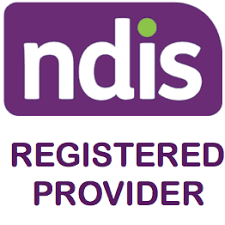Apps
Definition of Foetal Alcohol Spectrum Disorder
Foetal Alcohol Spectrum Disorder (FASD) refers to a range of neurological problems resulting from exposure of an unborn child (fetus) to alcohol during pregnancy.
The fetus cannot process alcohol hence it can damage brain cells, the spinal cord as well as other parts of their body and hinder their normal development in the womb. This disorder is a permanent, severe neurodevelopmental impairment and babies that survive the pregnancy, may be left with lifelong developmental problems (APA, 2013).
Learn more about FASD with our self-paced online course designed to equip you with practical, neurodevelopmentally-informed strategies to understand and support young people whose learning, behaviour, and emotional regulation are impacted by prenatal alcohol exposure.
Causes of FASD
Universally, it is estimated that alcohol is the principal cause of preventable birth defects and intellectual disability. FASD is associated with an array of birth defects and may also affect a child’s average life expectancy. If a pregnant woman drinks alcohol, the alcohol passes through the placenta from her blood into the unborn child’s bloodstream exposing the unborn child to the same alcohol concentrations as the mother.
The alcohol then inhibits the unborn child’s development of the foetal nervous system (including the brain) and may also trigger changes in facial development resulting in certain facial features.
The challenge sometimes is that at-risk children may not be identified in good time or a diagnosis may not be done promptly.
This results in many affected individuals not being effectively identified for timely intervention and appropriate support to be put in place (AMA, 2016; Centers for Disease Control and Prevention, 2021 & Shelton et al, 2018).
Types of FASD
There are three main types of Foetal Alcohol Spectrum Disorders (FASDs). There are:
1. Foetal Alcohol Syndrome (FAS) – this usually represents the most involved end of the spectrum. Those with this type of FASD usually have growth problems, minor facial features and central nervous system problems. In most cases, those affected may have challenges with learning, attention span, communication, vision, hearing, memory, and getting along with others.
2. Alcohol-Related Neurodevelopmental Disorder (ARND) – those with this type of FASD may exhibit intellectual disabilities resulting in poor performance in school and difficulties with math, memory, attention, judgement and impulse control. They may also have behavioural and learning problems.
3. Alcohol-Related Birth Defects (ARBD) – those affected by this type of FASD might have heart, kidney, bone or hearing problems or a mix of these.
(AMA, 2016; Centers for Disease Control and Prevention, 2021 & Shelton et al, 2018)
Symptoms of FASD
Those affected by FASDs usually exhibit various signs and symptoms broadly identified by certain facial features, developmental, as well as learning & behavioural challenges.
Distinctive Facial features that may be a sign of FASD, including:
- The horizontal length of the eye opening is short, from the inner corner to the outer corner of the eye
- Philtrum that is smooth instead of ridged (this is the usually ridged skin area between the upper lip and the nose)
- A thin upper lip
Learning and behavioural problems that may indicate effects of FASD include:
- Learning challenges or difficulties e.g. speech problems, problems with math and time keeping etc.
- Challenges with memory.
- Impulsiveness.
- Short attention span (challenges concentrating or easily distracted and/or may be hyperactive).
- Challenges connecting actions to consequences (poor reasoning and judgement skills).
- Challenges in following instructions (able to verbally articulate/repeat instructions but not follow them).
- Challenges with intellectual thinking (especially when dealing with math etc.).
- Delayed cognitive processing (thinking)
- Challenges in effectively handling social relationships.
For more support with these symptoms of FASD see:
- Strategies for Improving Attention Span and Avoiding Distraction
- Why is Play so Challenging for Children with Disabilities
- Strategies to Make Friends at School
Other signs of symptoms of FASD may include:
- Poor growth, where the baby is smaller than average at birth, have slow growth and be shorter-than-average height as an adult.
- Poor coordination with problems in movement and balance.
- Sleep and sucking problems as a baby.
- Vision and/or hearing problems.
- Problems with the heart, kidneys, bones or other organs.
- Small head size.
(AMA, 2016; Centers for Disease Control and Prevention, 2021 & Shelton et al, 2018)
References
Behaviour Help
If you are supporting an individual with this diagnosis, please refer to our services and resources. They aim to help children, adolescents and adults achieve better communication, social, emotional, behavioural and learning outcomes. So whether you are wanting guidance on parenting, teaching, supporting or providing therapy, Behaviour Help is at hand.
Note: This is not an exhaustive list of all the possible causes, symptoms and types but some general information that can be further explored. Based on what you have read if you have any concerns about an individual, please raise them with the individual/s. The caregiver can then raise these concerns with their local doctor who can provide a referral to the relevant professional (e.g. paediatrician, psychologist, psychiatrist, allied health professional and learning specialists) for diagnosis and treatment if appropriate.
Get Started with Behaviour Help App
Assess-manage-prevent behaviours of concern efficiently and effectively with the Behaviour Help App.



